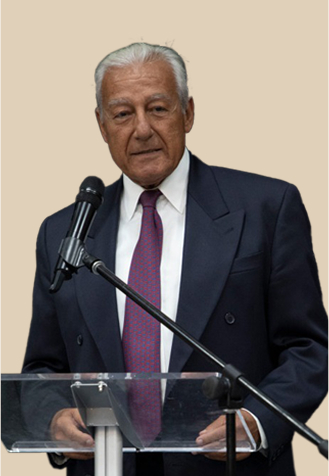40 Years of Trauma: ADC Remembers the Victims of the Sabra and Shatila Massacre
Washington, DC | www.adc.org | September 16, 2022 — Today marks the 40th anniversary of one of the most brutal, and least remembered, acts of violence in modern history: the massacre of the Sabra and Shatila refugee camps. Beginning on September 16, 1982, Lebanese militia operating under the direction of Israeli forces massacred, wounded, and left homeless thousands of defenseless men, women, and children in the Sabra and Shatila Palestinian refugee camps. The indiscriminate killing was carried out methodically over the course of two days until the morning of September 18. By the end of this days-long campaign of violence and terror, at least 1,200 Palestinian civilian refugees had been murdered.
During the massacre, Israeli forces were in full control of the area in which the Sabra and Shatila camps were located. They allowed militants into the camps, prevented refugees from fleeing for their lives, and lit the night sky with a continuous series of flares as the killing raged on. The day after the killings stopped, the United Nations Security Council condemned the “criminal massacre of Palestinian civilians”. Three months after the massacre, the United Nations General Assembly voted unanimously to condemn “in the strongest terms” the killings and concluded that “the massacre was an act of genocide”. The following February, an independent commission established by the United Nations concluded that the Israeli authorities were responsible in the massacres, and that the intention behind the massacre was “the deliberate destruction of the national and cultural rights and identity of the Palestinian people”.
Even the Israeli-established Kahan Commission could not fully indemnify the Israeli military, concluding that Israeli military personnel were well aware of the ongoing massacre and stood by idly as it continued. The Kahan Commission specifically focused on then-Defense Minister Ariel Sharon, finding that he bore “personal responsibility” for “ignoring the danger of bloodshed and revenge” and “not taking appropriate measures to prevent bloodshed”, and recommending he be dismissed. Following a brief standoff, Sharon resigned his post as Defense Minister. However, Ariel Sharon eventually became Israel’s Prime Minister in 2001. This fact bears repeating; the man the Israeli government publicly stated bears “personal responsibility” for the horrific massacre of over 1,200 Palestinian civilian refugees in 1982 became the Prime Minister of Israel almost 20 years later.
40 years later, the massacre of Palestinians at Sabra and Shatila remains one of the most significant targeted acts of violence against the Palestinian people, and highlights the plight of refugees who have been dispossessed from their homeland for over 70 years. The atrocities continue to traumatize survivors, who adamantly seek justice while mourning all who were inhumanely slain. Decades later, the painful memories of the massacre persist and the perpetrators remain unpunished.
The international community is urged to remedy its moral responsibility to the victims of the Sabra and Shatila massacre by working to end Israel’s occupation and other abuses of Palestinian human rights. The families of the massacred and those who survived and witnessed this brutal attack deserve justice and peace.
Informational Article on Sabra and Shatila:
American survivor of Sabra-Shatila massacre has spoken out for 39 year
Recent Posts
Action Alerts

Your support means everything. Your gift protects rights, builds community, and fights hate. Let’s move forward together.
